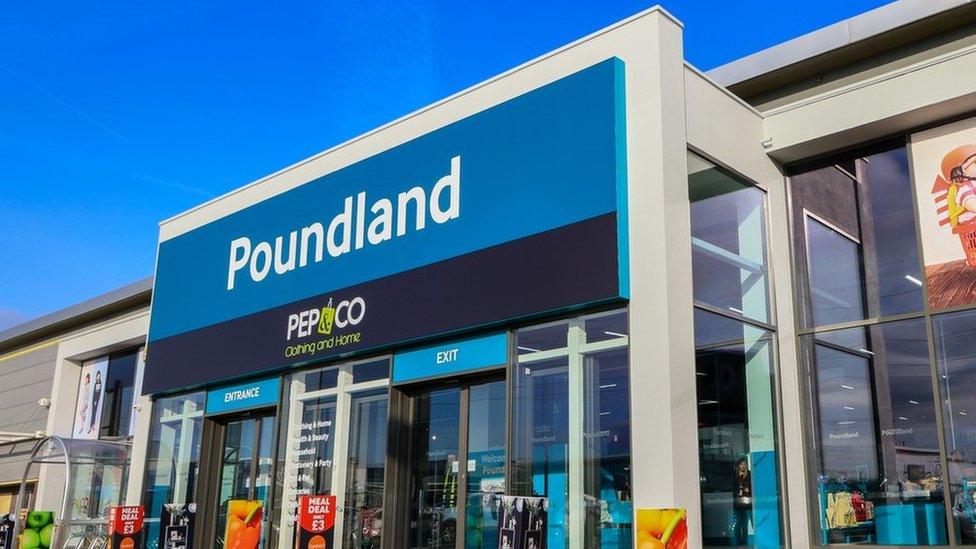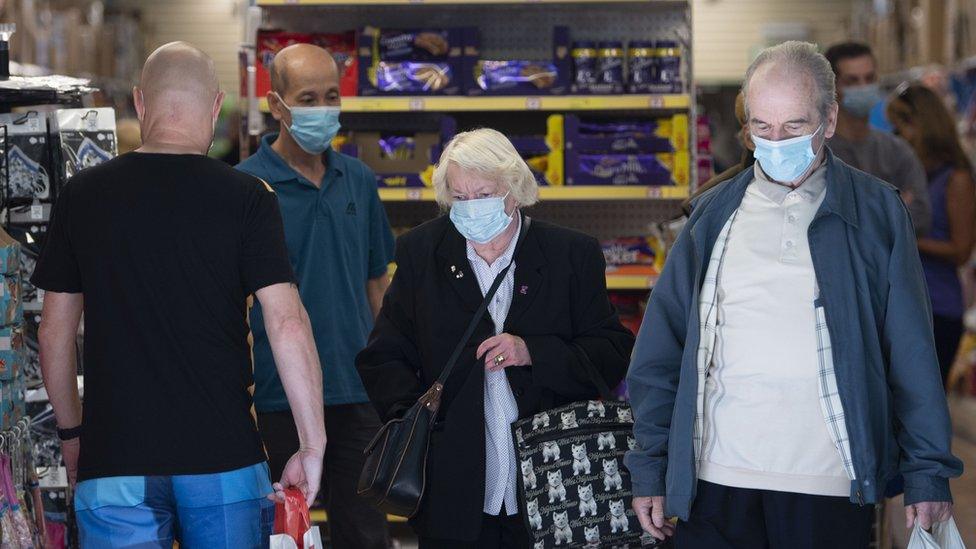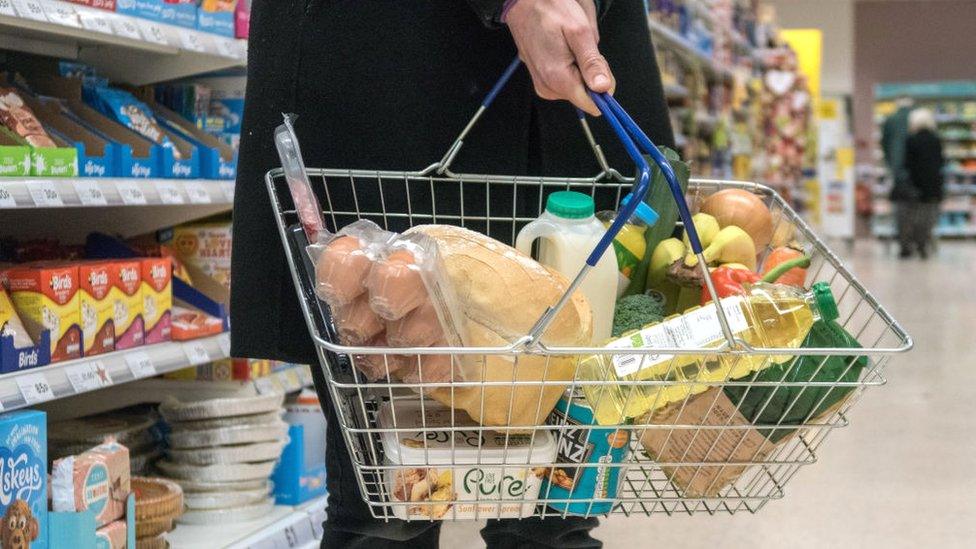Poundland boosts £1 items in battle for shoppers
- Published

Poundland is increasing the number of products it sells for a pound as retailers battle for customers.
Around half of its products are priced at a pound, but the business says by the end of this week 60% of what it sells will be a pound or less.
The discount chain says it is seeing a rise in customer numbers as people seek savings as the cost of living rises.
Recent surveys have suggested customers are spending less on their food shop because of rising prices.
Supermarkets Asda and Tesco have said customers are cutting back on shopping.
Asda told the BBC that some shoppers are asking cashiers to stop scanning items when the till total hits £30 as they try to cut costs. Many customers are also switching to budget ranges.
Meanwhile, Tesco, the UK's largest supermarket, has said it is seeing early signs that shoppers are changing their habits due to high inflation - the rate at which prices rise - such as buying less food and visiting more frequently.
The big grocers have also been investing heavily in keeping prices as low as possible for everyday essentials and the market is fiercely competitive.
Kantar Worldpanel provides a monthly update into grocery spending. In its latest figures, Tesco, Aldi and Lidl were the only supermarket chains to grow their market share. Its Head of Retail and Consumer Insight, Fraser McKevitt, says there's no sign of a significant shift to bargain chains so far.
Prices overall are continuing to rise at their fastest rate for 40 years, with UK inflation at 9.1% - the highest level since March 1982.
Poundland boss told the BBC there is now a "definite dynamic" of shoppers migrating away from major supermarkets to the discounters.
"I think you're seeing a shift, a flight to value, if you like, from the traditional grocers, the major multiples, into the discount channel where we operate. Most discounters are performing better at the moment," says Barry Williams, Managing Director of Poundland.
He says customer numbers are up 5-10% compared with the same period last year.
Some of that increase will be down to more people returning to High Streets and shopping centres post-covid.
But Mr Williams says people are shopping around and controlling their spending as much as they can.
"What we're definitely seeing is customers are prioritising essential areas of spend. It's more around fast moving consumer goods, it's more around food. .. perhaps a few less items in each basket."

Poundland says shoppers are migrating to discount shops
Sales of frozen food are up, a category which he says tends to perform well at difficult times as it helps shoppers manage waste.
But over the last five to ten years these low cost chains, which have steadily improved their offer, have been nibbling away at supermarket sales.
Research firm NielsenIQ in its latest shopping survey found that one in four households were monitoring the overall cost of their shopping basket, including seeking out their favourite brands at value retailers like Poundland and Home Bargains.
Poundland has more than 850 stores across the UK. It was founded in 1990, primarily as a discount store with products at a pound, including clearance lines. Over the years the chain has expanded its ranges, for instance around half its stores now sell clothing. And more recently it has been rolling out chilled and frozen food.
Mr Williams says with inflation soaring to its highest level in years, Poundland's one pound price point is being expanded to make it easier for customers to manage their budgets.
"Customers are being really mindful about how much they spend, this is a really easy way for them to control that spend as well."
Two thirds of the products will be branded goods.
"Not over"
He dismissed the suggestion that the one pound price point would be achieved by "shrinkflation", where companies reduce the content of products but keep the same price.
"There's not shrinkflation in this. But that was something that happened in the market a number of years ago. It's certainly not what's happening right now,"
The Poundland boss won't be drawn on how high he thinks inflation will go, saying only that "it's not over yet."
He says the big danger is that inflation gets "baked in" and may not come back down and claims that the discounters, from Aldi and Lidl to the likes of B&M and Home Bargains, now have an increasingly important role to play in being a "price anchor" for the market.
"Without a healthy discount sector, which we're fortunate to have in this market, there is a danger that prices would remain at these inflated levels".
Related topics
- Published24 June 2022
